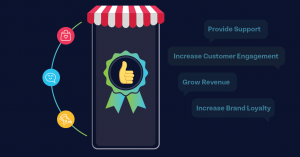
There are key areas that properly demonstrate how advanced our technology is. One of these is how people transport themselves. For example, you can look at a car and properly estimate how long ago it was designed. This is due to the technology progressing, as parts are added or removed, depending on efficiency. The latest focus for vehicle technology has been autonomous vehicles – or “self-driving cars” – which do not require user input to transport individuals or goods to specific destinations. Of particular interest has been recent discussions linking autonomous vehicle technology to buses and smart cities. It’s important to consider what all this might mean and where this will take society.
What are autonomous vehicles?
Driving technology these days has levels of autonomy engineers apply to them. Autonomous vehicle technology doesn’t so much describe the car as the system beneath it. Basically, when discussing autonomous vehicles, people are referring to how much driver input is necessary for a vehicle to reach its destination.
As the Economist stresses, it’s important to consider the difference between autonomous cars and self-driving cars. By autonomous, people mean systems which, says The Economist, “will take over from the driver under certain circumstances”. Modern drivers already experience degrees of autonomous systems, such as self-parking, cruise control, automatic wipers, and so on. Self-driving takes this concept much further where, The Economist notes, the steering wheel “will disappear completely and the vehicle will do all the driving using the same system of sensors, radar, and GPS mapping that autonomous vehicles employ”.
Of course, this kind of advanced system could only work in cities designed to accommodate such incredible technology. For businesses, entire fleets of self-driving cars could complete important assignments without worrying about the necessity of human drivers.
Naturally, people whose careers consist of driving are expressing concern. For example, self-driving trucks are not only being considered but have already been demonstrated. As USA Today notes: “Self-driving truck start-up Otto teamed with Anheuser-Busch to successfully deliver a semi-tractor full of beer from Fort Collins, through Denver and on to the southern Colorado city in the shadow of Pikes Peak.”
While this will have a major impact on business, it’s also worth considering another vehicle becoming autonomous: buses. With future technology trends aimed at improving cities, it’s no wonder public transport is in the sights of modern engineers.
Smart cities and buses
The modern city, especially in America, is more advanced than ever. Indeed, they’re even becoming “smart” with smart city solutions already on the horizon, allowing relevant authorities to obtain data easily from connected devices.
In the modern city, people can summon cars from their phones, check times of trains, and buy airline tickets with a touch of a button. Of course, this only gets you to the vehicle – that doesn’t mean the vehicle itself is smart. Making buses and other shuttle services autonomous is one future technology trend that makes sense, especially for a smart city. As Geek Wire notes:
“Shuttle services are particularly well-suited for autonomous vehicles because they tend to involve well-established, predictable routes. That’s the reason why Local Motors’ Olli driverless shuttles are making inroads in urban settings such as Miami, Las Vegas, and Washington, D.C. In the Netherlands, a program called WEpods is taking a similar route.”
What this means for business
As vehicles and cities advance to make life easier, businesses must adapt. Cities are where businesses exist and vehicles allow for customers and staff to reach important destinations. It also means the transport of goods that are essential to businesses. To that end, businesses must begin thinking about how ready they are for a smart city.
There's plenty to be excited about when it comes to autonomous vehicles. Earlier this month, we got to see the first autonomous racing cars at the 2017 Mobile World Congress, for example. Importantly though, businesses need to be paying attention to getting connected and ready for the future that is already here. Startups have focused their attention on the Internet of Things and the smart city, capitalizing on future tech trends before they get left behind. If successful startups are preparing, it’s time every business does the same.
Explore other articles
Step into the future of business messaging.
SMS and two-way channels, automation, call center integration, payments - do it all with Clickatell's Chat Commerce platform.








